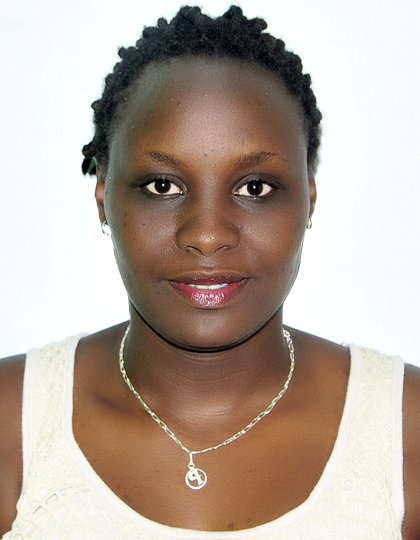
Providence Dusingize, 28, is back home in Rwanda after working as a midwife activity manager at an MSF-run mother and child centre, at the Nguigmi Hospital and at three health centres, in Diffa, Niger. Providence gained huge satisfaction from helping mothers to have safe and healthy pregnancies and births.
Describing her time in Niger, Providence says it was a good experience which developed her knowledge in dealing with obstetric complications – a common occurrence in the country – as well as team management.
Numerous reasons exist for the high rates of obstetric complications in Niger. The prevalence of child marriage causes many girls to fall pregnant at a young age, posing serious risks to their health.
It’s also common for women to give birth to many children, which can sometimes lead to obstetric problems. Widespread poverty also leads to health problems as many girls and women lack adequate nutrition to enable healthy pregnancies and births.
Before embarking to Niger, her first assignment with MSF, Providence worked as a midwife at the Rwamagana Hospital in Rwanda.
What work were you doing in Niger?
I worked as a midwife activity manager where I was in charge of 12 midwives at the mother and child centre as well as three midwives and three nurses at Nguigmi Hospital. I was also responsible for the midwives at three health centres in outlying areas.
While most of the midwives I managed were employed by MSF, some were hired by the Ministry of Health. I ran all the maternity services, where I conducted trainings for midwives to ensure they provided high-quality service and followed MSF midwifery protocols to avoid any malpractice.
I also supervised the rotation of midwives to ensure the smooth running of maternal health activities and ensured proper use of the partogramme which tracks labour progress and monitors the well-being of baby and mother.
As part of my job, I supervised the distribution of medicines and followed up on which drugs and other stocks were needed. Every week, I collected and ensured the effectiveness of data on the work we had done such as the number of babies that were delivered, the number of admissions and sadly also, the number of maternal and infant deaths. I also made sure that patients’ files, registers and other documents were all in order.
My large workload meant I also had to work on Saturdays and sometimes on Sundays to ensure everything ran well.
Why did you join MSF?
I joined the organisation because I wanted to save the lives of women and babies living in dangerous and difficult situations.
What was most satisfying about your job?
I liked assisting women in Niger to deliver their babies safely and I enjoyed helping the midwives develop their competences in managing obstetric cases. The country really needs experienced midwives to assist the large numbers of pregnant women needing help. It was great working with Nigerien staff from the Ministry of Health as they really cooperated with our MSF team. Good teamwork among the midwives made work pleasant and efficient. They also appreciated the training I gave them and were so eager to learn.
What were some of the challenges you faced?
I regularly travelled from the mother and child centre to the health centres and Nguigmi Hospital which were a long distance away. Spending so much time on the road could be tiring. The climate in Niger is also extremely hot - temperatures could reach 45 ⁰C.
What did you learn while working in Niger?
I gained a lot of knowledge on using the ultrasound and on MSF’s midwifery protocols. I also learned to work with patients who speak a different language and to live with people of different cultures and who may have mindsets different to my own.
As Niger is a predominantly Muslim country, it’s customary for women to wear headscarves and so I did this while working. In this way, I respected my patients’ culture while they gained confidence in me.
In Niger, I encountered many girls and women undergoing obstetric challenges such as eclampsia (a serious hypertensive disorder) and severe bleeding in pregnancy. I therefore expanded my knowledge in managing pregnancy and birth-related complications.
What are your plans for the future?
I’ll soon be heading to the Central African Republic (CAR) to work as a midwife on another MSF assignment.
Find out more about MSF's work Niger